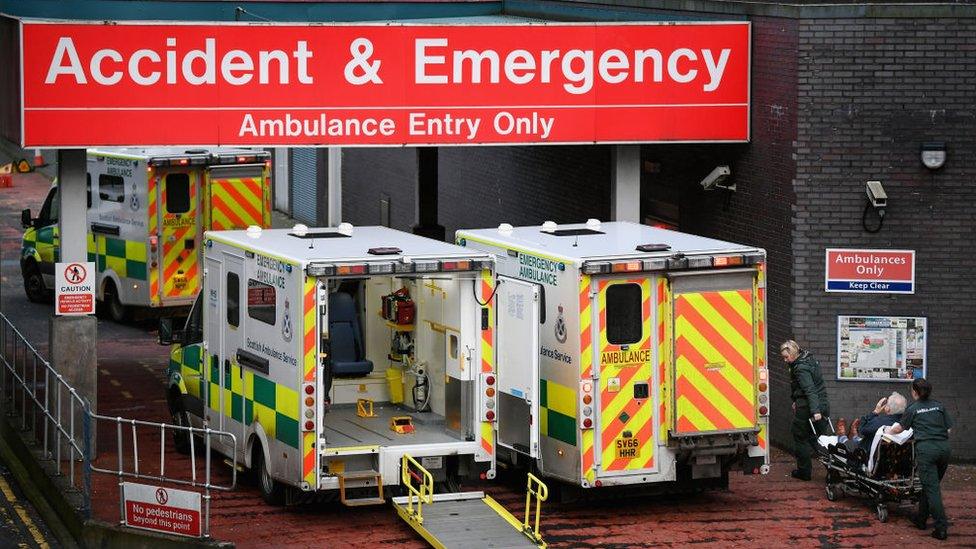South East Coast Ambulance Service issues New Year's Eve plea
- Published
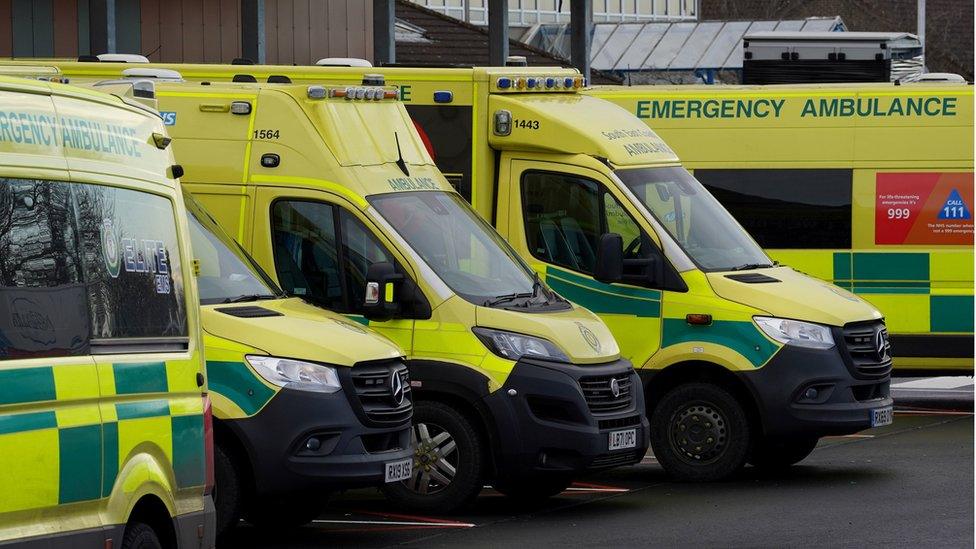
Secamb says it faces sustained pressure following the festive period, with demand expected to remain high ahead of New Year's Eve
An ambulance service that covers four counties has called for support from the public ahead of New Year's Eve.
The South East Coast Ambulance Service (Secamb) urged people to only call 999 for genuine emergencies.
NHS services in the South East continue to face sustained pressure, with Surrey and Sussex NHS Trust, Medway Maritime Hospital and Secamb all declaring critical incidents this month.
Demand is expected to remain high across the New Year period.
Secamb is responsible for covering Brighton & Hove, East Sussex, West Sussex, Kent, Surrey, and North East Hampshire.
Last year, the trust said it answered about 1,000 999 calls in the seven hours from 20.00 GMT on 31 December.
Those celebrating New Year's Eve are urged to plan their evenings, including how they get home, ensuring they look out for others, and, if drinking alcohol, remembering the impact excessive drinking can have on health and emergency services.
'Celebrate sensibly'
Emma Williams, Secamb executive director for operations, said: "We have faced significant pressure on our services for many weeks but we know that New Year's Eve can bring additional challenges."
Ms Williams wants people to celebrate "sensibly" and says she understands how the decisions of individuals can impact an "already stretched ambulance service".
"I would like to thank all our staff and volunteers for their hard work and professionalism at this busy time and urge the public to show their support by using NHS services wisely," she added.
The public is asked to help Secamb manage pressure by reserving 999 for genuine emergencies and making use of alternatives such as the 111 service, when incidents are not so serious.
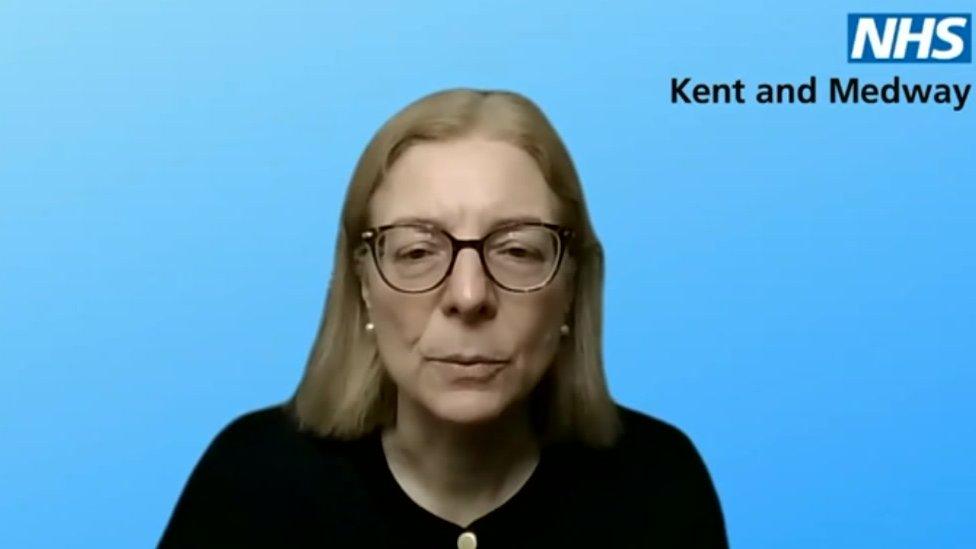
Dr Kate Langford, Chief Medical Officer for NHS Kent and Medway, says it is "incredibly challenging" at the moment
Meanwhile, Chief Medical Officer for NHS Kent and Medway, Dr Kate Langford, urged people to be "very, very selective" when using emergency services amid an "incredibly challenging" period due to flu and Covid.
She said using 999 or an emergency department for something not life threatening could be "delaying the care of someone who does have a life threatening condition".
"Anything people can do to avoid using those routes unless it really is an emergency is greatly appreciated," she added.

Follow BBC South East on Facebook, external, on Twitter, external, and on Instagram, external. Send your story ideas to southeasttoday@bbc.co.uk, external.
- Published20 December 2022
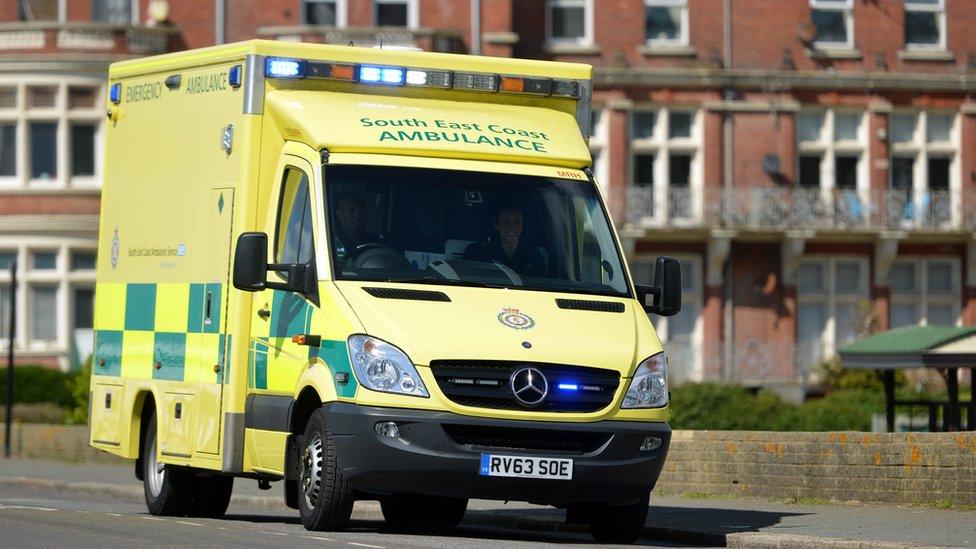
- Published22 December 2022
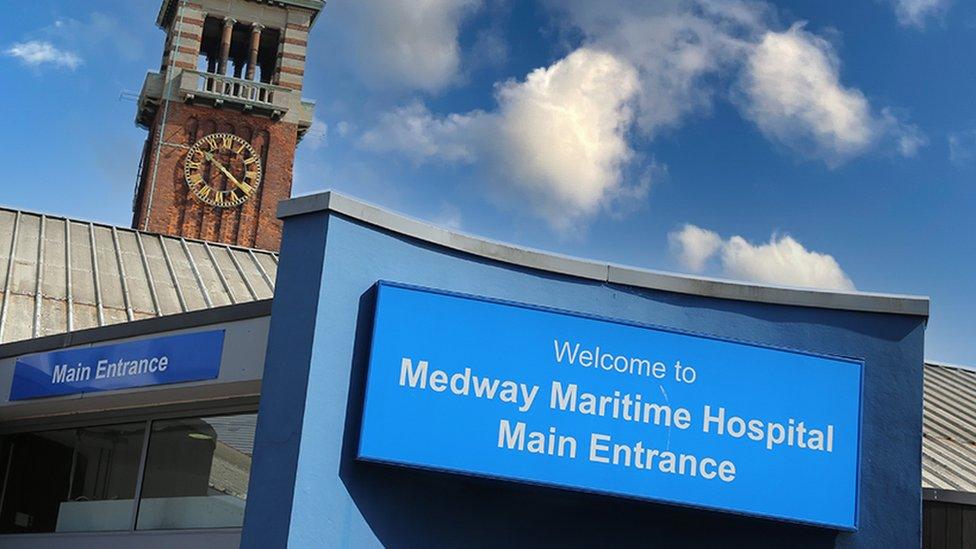
- Published29 December 2022
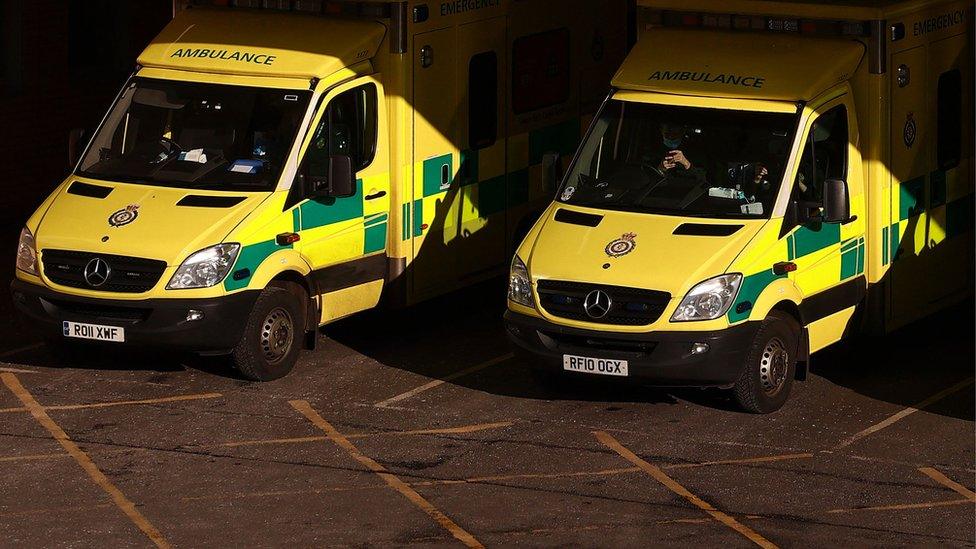
- Published22 December 2022
